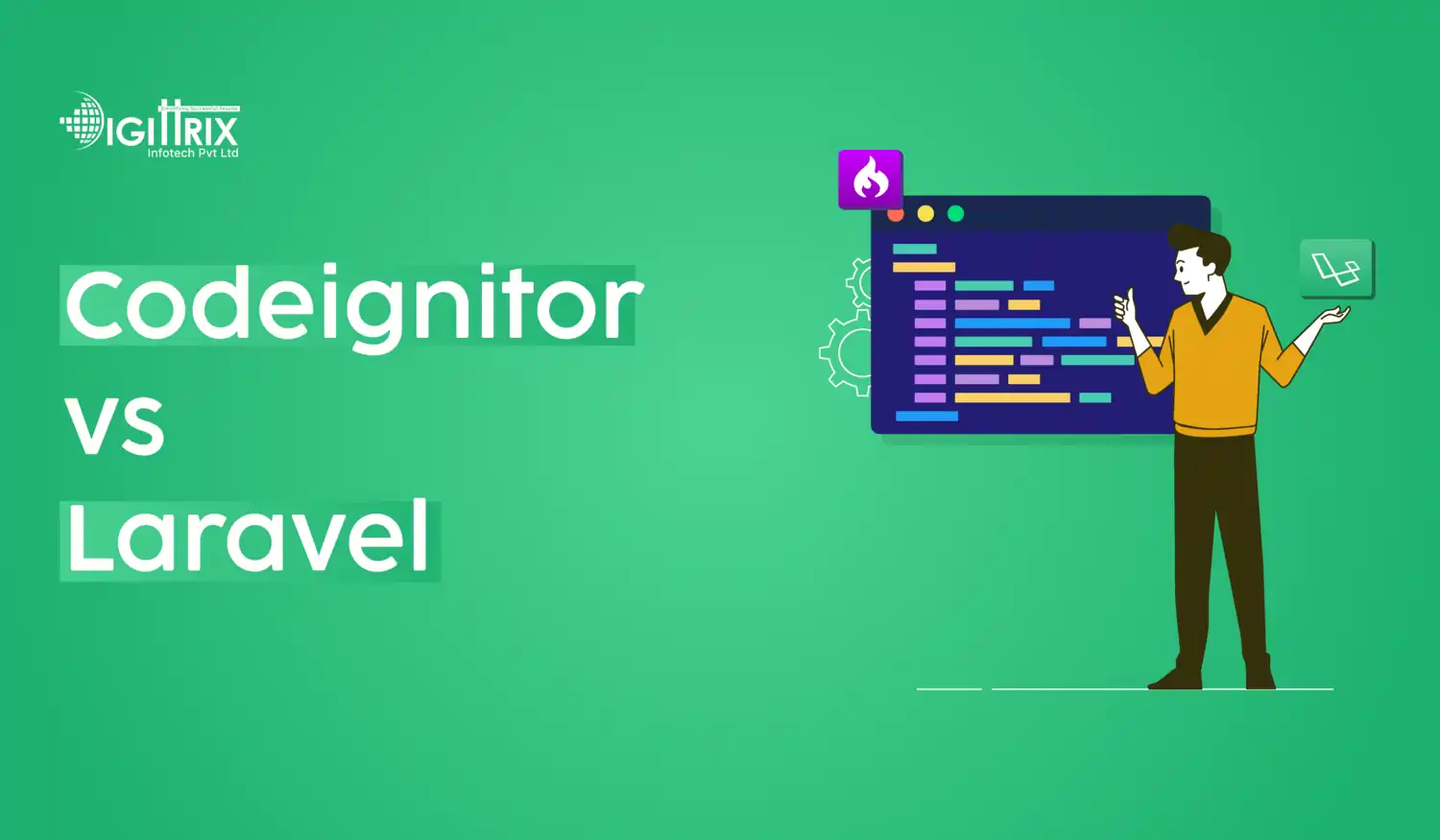CodeIgniter and Laravel are the most renowned PHP frameworks of web application development. CodeIgniter's lightweight framework is suitable for beginners because of its simplicity and speed. With advanced features, epic security, and scalability, Laravel is best suited for the development of complex applications.
Highlights
An enthusiastic developer and skilled business management expert with over a decade of experience in the field

When it comes to the management of the web development activity, choosing the right PHP framework is critical. But most of the time two frameworks are often mentioned which are CodeIgniter and Laravel. Both of them suit different types of projects and are effective only when used correctly, it’s important to know the strengths and weaknesses of each framework before going for one on the next project. To serve this purpose, this article will explain both its advantages and disadvantages about CodeIgniter, as well as, the pros and cons of Laravel.
CodeIgniter is one of the most popular open-source PHP frameworks that is used for the development of different web applications with ease and faster. It offers a bundle of libraries and tools for developers to build good steady web applications with fewer code expressions. CodeIgniter has been developed as a simple framework, small in size and does not focus on excessive use of modules in the framework. It emphasizes quickness and adaptability, making it ideal for fresh developers as well as professionals.
It is an elegant and expressive PHP framework that helps to create beautiful and complex web applications without much hassle. It is characterized by said that it is easy to use, has a strong focus on best practices and offers multiple features. There is no doubt that Laravel is the perfect option for heavy-full-framework coders who want something more than the minimum which is accompanied by a vast number of libraries, resources, tutorials, and the strongest support from the community.
CodeIgniter follows a loosely coupled architecture, allowing developers to use only the components they need. In contrast, Laravel follows the MVC pattern, which promotes better code organization but demands more effort during the setup process.
Laravel’s Eloquent ORM simplifies database interactions with its intuitive syntax. CodeIgniter uses a more traditional Active Record pattern, which, while effective, lacks the elegance of Laravel’s approach.
Laravel’s routing system is more advanced, allowing developers to define clean and expressive routes. CodeIgniter’s routing is simpler but less flexible.
Both frameworks have active communities, but Laravel’s larger user base means more tutorials, packages, and resources are readily available.
Selecting the right PHP framework depends on your project’s requirements, timeline, and the expertise of your development team. For startups or businesses seeking a Laravel development company, Laravel’s modern features and scalability make it a preferred choice. On the other hand, developers looking for quick web application development without the need for advanced features might find CodeIgniter more suitable.
When choosing between CodeIgniter as well as Laravel for developing an efficient Web application, certain advantages and disadvantages of each framework should be evaluated according to the needs of the project. If you are a beginner or if you wish to start with something that is lighter and more elastic then CodeIgniter could be the way to go. On the other hand, if you want a powerful, extensive framework that offers expression and has a rich collection of resources, Laravel is preferable.
It is also important to look at your project requirements and growth outlooks. Laravel development company might be more suitable for complex projects that require a vast number of features to integrate, and CodeIgniter is best fitted to smaller projects as it has a lightweight engine.
Making the right decision about the PHP framework to use for your web application development project is an important decision. By knowing the strengths and weaknesses of both CodeIgniter and Laravel you will be in a position to make the right choice and therefore can make sure that your Web development services will succeed.
Choosing the right PHP framework is essential for building robust and scalable web applications. CodeIgniter and Laravel are two popular frameworks, each offering unique advantages. If you're deciding between CodeIgniter and Laravel, Digittrix can guide you to the best solution tailored to your business needs.
Build a custom web application with us! We’re a leading web development company with 14 years of experience and a team of expert developers at Digittrix.
If you're ready to choose the right framework but don't know where to start, schedule your appointment or book a consultation with our expert technical managers today by calling +91 8727000867
or emailing us at digittrix@gmail.com for all your queries.

Do you need help in Web Development ?




Join over 1500+ businesses we've already helped!
CodeIgniter is generally easier for beginners due to its simpler structure and minimal configuration. Laravel, while more feature-rich, has a steeper learning curve, especially for those new to modern PHP frameworks.
CodeIgniter tends to perform better for smaller applications due to its lightweight nature. Laravel, with its extensive features, may be slower in comparison, especially for simpler projects, but it offers better scalability for large applications.
Yes, both frameworks are designed for web application development, but your choice will depend on your project's needs. CodeIgniter is great for lightweight projects, while Laravel is ideal for more complex applications requiring advanced features.
Laravel is better suited for large-scale applications due to its built-in tools for handling complex requirements like authentication, queues, and database management systems. CodeIgniter can handle larger projects but might require additional setup for advanced features.

©2026Digittrix Infotech Private Limited , All rights reserved.